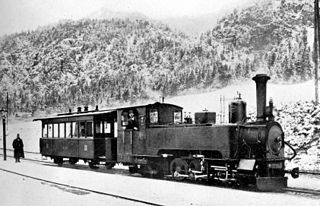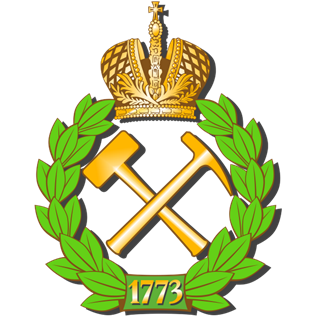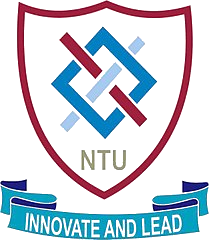
The Second Industrial Revolution, also known as the Technological Revolution, was a phase of rapid scientific discovery, standardization, mass production, and industrialization from the late 19th century into the early 20th century. The First Industrial Revolution, which ended in the middle of the 19th century, was punctuated by a slowdown in important inventions before the Second Industrial Revolution in 1870. Though a number of its events can be traced to earlier innovations in manufacturing, such as the establishment of a machine tool industry, the development of methods for manufacturing interchangeable parts, and the invention of the Bessemer process to produce steel, the Second Industrial Revolution is generally dated between 1870 and 1914.

The Bauman Moscow State Technical University, BMSTU, sometimes colloquially referred to as the Bauman School or Baumanka is a public technical university (Polytechnic) located in Moscow, Russia. Bauman University is the oldest and largest Russian technical university offering B.S., M.S. and PhD degrees in various engineering fields and applied sciences.

IMT Nord Europe or "École nationale supérieure Mines-Télécom Lille Douai" is a public French National Graduate School of Engineering. It is located in the Hauts-de-France region, shared between 2 campuses: the science campus of the University of Lille ; and the city of Douai. It is accredited by the Commission des Titres d'Ingénieur (CTI) to deliver the French Diplôme d'Ingénieur.

Saint Petersburg Mining University, is Russia's oldest technical university, and one of the oldest technical colleges in Europe. It was founded on October 21, 1773, by Empress Catherine the Great, who realised an idea proposed by Peter the Great and Mikhail Lomonosov for training engineers for the mining and metals industries. Having a strong engineering profession was seen by many Russian rulers as a vital means of maintaining Russia's status as a great power. As historian Alfred J. Rieber wrote, "The marriage of technology and central state power had a natural attraction for Peter the Great and his successors, particularly Paul I, Alexander I and Nicholas I". All three had had a military education and seen the achievements of the engineers of revolutionary and imperial France, who had reconstructed the great highways, unified the waterways and erected buildings throughout Europe in a more lasting tribute to the French than all of Napoleon's victories.

National Research Tomsk Polytechnic University (TPU) is a historically fourth technical university in Russia and the first one in Asian Russia. TPU is a member of 12 international associations and consortiums, including the European Association of Research Management and Administrations (EARMA), the Conference of European Schools for Advanced Engineering Education and Research (CESAER), the Consortium Linking Universities of Science and Technology for Education and Research (CLUSTER), the European University Association (EUA).

The National Textile University (NTU) (Urdu: is a public university located in Faisalabad, Punjab, Pakistan. It is a premier institute of textile education in Pakistan.
The following outline is provided as an overview of and topical guide to technology: collection of tools, including machinery, modifications, arrangements and procedures used by humans. Engineering is the discipline that seeks to study and design new technology. Technologies significantly affect human as well as other animal species' ability to control and adapt to their natural environments.
Industrial technology is the use of engineering and manufacturing technology to make production faster, simpler, and more efficient. The industrial technology field employs creative and technically proficient individuals who can help a company achieve efficient and profitable productivity.

The Moscow State University of Technology "STANKIN", previously the Moscow Machine and Tool Institute, the name of which is still preserved in the acronym STANKIN, is a Russian technical higher education institution founded in 1930. Today STANKIN trains specialists in machinery, robotics, CNC's, electronics, automation and control systems, economics of enterprises, informatics and measurement systems.

The Gubkin Russian State University of Oil and Gas is a public university in Moscow, Russia. The university was founded in 1930 and is named after the geologist Ivan Gubkin. The university is colloquially known as Kerosinka, meaning 'kerosene stove'.

The Kyrgyz State Technical University named after Iskhak Razzakov is a university in Bishkek, Kyrgyzstan. Formerly the university was known as the Frunze Polytechnic Institute. It was founded in 1954.

École des arts industriels et des mines is the name used during the Second French Empire to designate the French engineering school established in 1854 in Lille, North of France. It succeeded to the municipal chairs of experimental physics, applied chemistry and mechanics that were established in 1817. Its heir as a graduate engineering school is École Centrale de Lille.
Engineering studies is an interdisciplinary branch of social sciences and humanities devoted to the study of engineers and their activities, often considered a part of science and technology studies (STS), and intersecting with and drawing from engineering education research. Studying engineers refers among other to the history and the sociology of their profession, its institutionalization and organization, the social composition and structure of the population of engineers, their training, their trajectory, etc. A subfield is for instance Women in engineering. Studying engineering refers to the study of engineering activities and practices, their knowledge and ontologies, their role into the society, their engagement.
The Faculty of Chemical Engineering and Technology is a faculty of the University of Zagreb. The Faculty is regarded as the largest faculty and the leading educational and research institution in the field of chemical engineering in Croatia.

Agricultural technology or agrotechnology is the use of technology in agriculture, horticulture, and aquaculture with the aim of improving yield, efficiency, and profitability. Agricultural technology can be products, services or applications derived from agriculture that improve various input/output processes.
Industrialization in the Russian Empire saw the development of an industrial economy, whereby labor productivity increased and the demand for industrial goods was partially provided from within the empire. Industrialization in the Russian Empire was a reaction to the industrialization process in Western European countries.
The Electricity sector in Imperial Russia developed in the late nineteenth century. Vladimir Chikolev founded the electrical engineering section of the Imperial Russian Technical Society in 1878.

De Jersey & Co. was a company founded by the brothers Johann Andreas Frerichs and Johann Heinrich Frerichs, two merchants from Bremen who settled in England, where they became involved in the cotton industry. They were attracted to Manchester, which had acquired the nickname Cottonopolis by the mid nineteenth century.
The Textile sector of Imperial Russia developed significantly in the nineteenth century. It played a significant role in the Industrialization in the Russian Empire.













